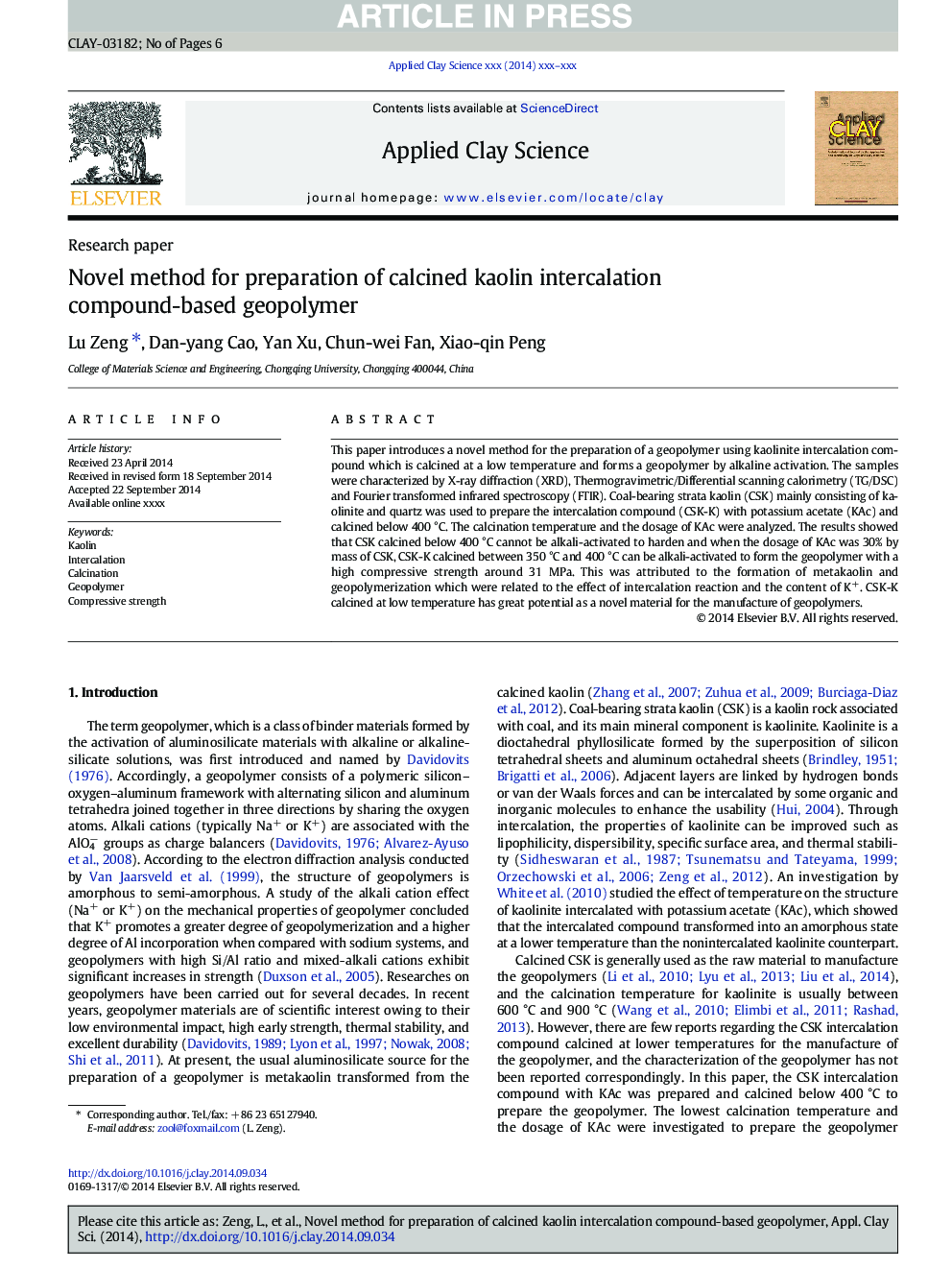| Article ID | Journal | Published Year | Pages | File Type |
|---|---|---|---|---|
| 8047005 | Applied Clay Science | 2014 | 6 Pages |
Abstract
This paper introduces a novel method for the preparation of a geopolymer using kaolinite intercalation compound which is calcined at a low temperature and forms a geopolymer by alkaline activation. The samples were characterized by X-ray diffraction (XRD), Thermogravimetric/Differential scanning calorimetry (TG/DSC) and Fourier transformed infrared spectroscopy (FTIR). Coal-bearing strata kaolin (CSK) mainly consisting of kaolinite and quartz was used to prepare the intercalation compound (CSK-K) with potassium acetate (KAc) and calcined below 400 °C. The calcination temperature and the dosage of KAc were analyzed. The results showed that CSK calcined below 400 °C cannot be alkali-activated to harden and when the dosage of KAc was 30% by mass of CSK, CSK-K calcined between 350 °C and 400 °C can be alkali-activated to form the geopolymer with a high compressive strength around 31 MPa. This was attributed to the formation of metakaolin and geopolymerization which were related to the effect of intercalation reaction and the content of K+. CSK-K calcined at low temperature has great potential as a novel material for the manufacture of geopolymers.
Related Topics
Physical Sciences and Engineering
Earth and Planetary Sciences
Geochemistry and Petrology
Authors
Lu Zeng, Dan-yang Cao, Yan Xu, Chun-wei Fan, Xiao-qin Peng,
